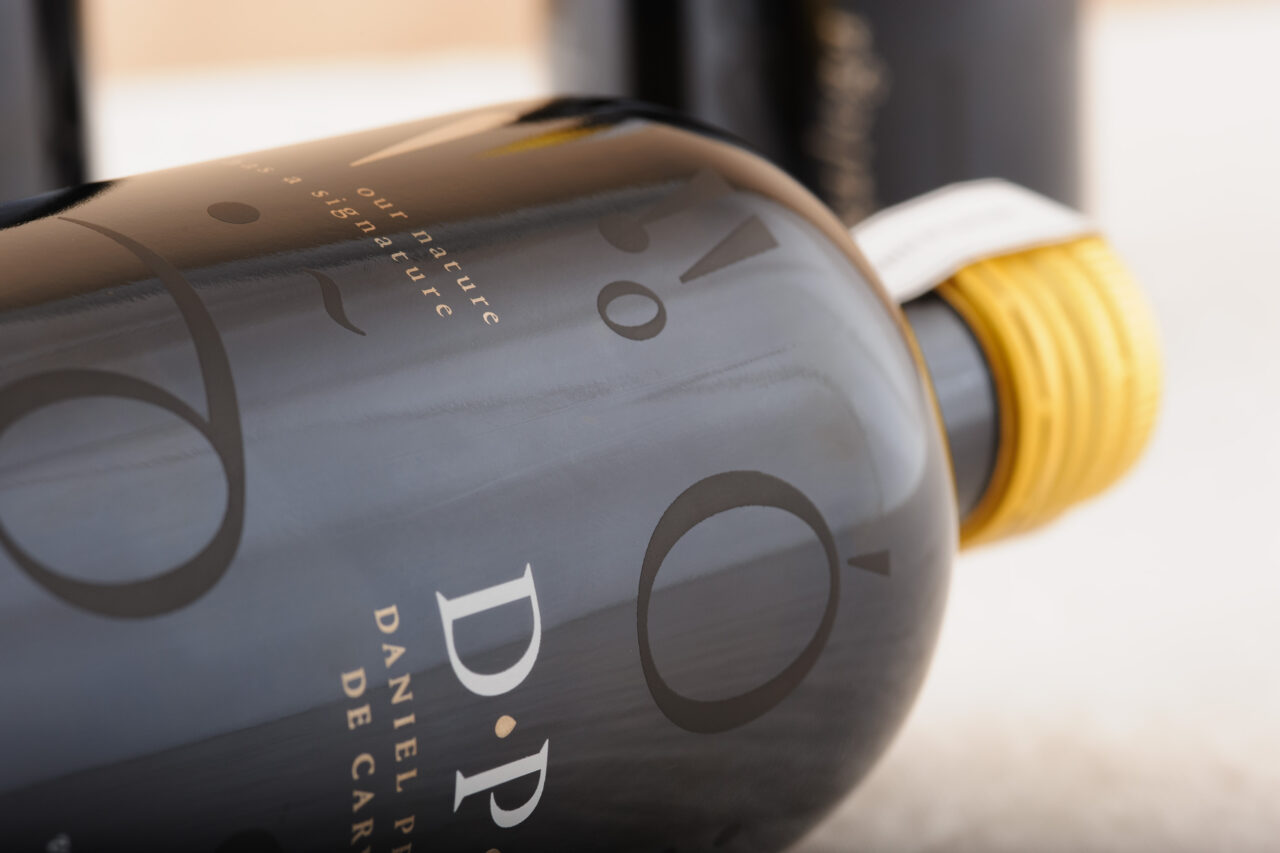
Ana Freitas’s Many Islands studio has designed the packaging for D.P.C., a new range of extra virgin olive oil products from Portuguese lawyer, former minister and musician, Daniel Proença de Carvalho.
Freitas, whose Lisbon-based studio is profiled in the forthcoming issue of Pulp, oversaw the creative direction of the project and designed the packaging with três agá studio.
Proença de Carvalho’s family-owned grove features Galega, Cobrançosa, Frantoio and Cordovil olive varieties – the names of each inform the visuals used on the different bottles: Galega, ‘the false nomad’; Cobrançosa, ‘the susceptible’; Frantoio, ‘the Italian mermaid’; and Cordovil, ‘the candid’, Freitas explains.
‘We used the narrative for each variety to create a visual for each bottle, using only typographic elements in a contemporary and minimalist manner,’ she says. ‘The visual system we developed mimics elements of nature – olives, leaves, birds.’
The identity word mark features Proença de Carvalho’s initials, D.P.C., set in Portrait (Commercial Type) and uses a colour palette inspired by the landscape of the Alentejo region in southern Portugal.
‘We screen-printed a typographic landscape for the Special Blend Edition, mixing the olive varieties’ names and abstract representations of olives and other elements,’ she adds. ‘The outer case of the bottle, which is wrapped in tissue paper with the image of an olive tree from D.P.C.’s grove, replicates the design with an embossed finish.’
Freitas chose Freelife Merida White paper because its environmental credentials align with D.P.C.’s values, she says. ‘The felt marking also gives it a natural but premium look.’





